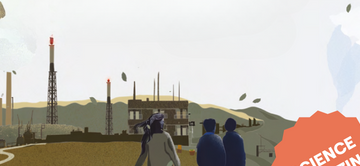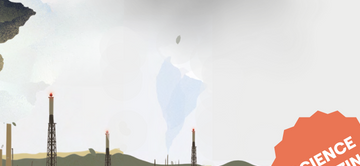This article was published in TSE science magazine, TSE Mag. It is part of the Spring 2024 issue, dedicated to “Climate Revolution”. Discover the full PDF here and email us for a printed copy or your feedback on the mag, there.
Eating a healthier, plant-based diet is not just a personal choice, it’s part of our collective responsibility for the planet. We need a revolution in the ways we produce and consume food, spurning beef-heavy ‘Westernized’ diets. Using the principles of public economics, TSE’s Zohra Bouamra-Mechemache and Vincent Réquillart suggest how Europe can tackle this meaty problem.
In 2017, farming generated 11% of Europe’s greenhouse gas (GHG) emissions, with livestock contributing the lion’s share. By eating less meat, we could reduce land and water use, local pollution, global deforestation and loss of biodiversity. Additional concerns relate to an excessive consumption of red and processed meat with possible public health consequences. As current EU policies fail to address these issues, our research makes the following recommendations:
Existing farming subsidies must be reoriented towards greater sustainability and animal welfare.
The Polluter Pays principle must be implemented at the EU level with taxes on the key causes of GHG emissions (nitrogen fertilizers and cattle) and environmental damage (nutrients, pesticides). Alternatively, reinforce greening and cross-compliance requirements.
As part of the Provider Gets principle, “virtuous” farmers should receive results-based payments for ecological services such as grassland management.
Reform must support incomes during a transitional period, granting virtuous farmers a temporary risk premium.
Trade agreements should plug pollution leakages and ensure a level playing field.
Taxes and subsidies on food consumption should also be on the table to encourage low-GHG diets.
Using information campaigns, labels, nudges and initiatives like “Meatless Mondays” will allow us to take steps toward sustainability. For now, these may seem to have only a limited effect, but in the long run they could greatly modify consumer behavior.
FURTHER READING
Zohra Bouamra-Mechemache et al. (2021) Review: Why and how to regulate animal production and consumption: The case of the European Union - Animal





